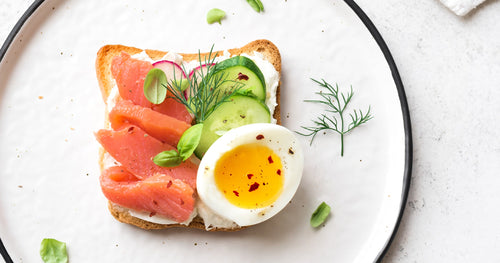
May is Osteoporosis Awareness Month – and there’s no better time to talk about preserving our bone health.
Foods and Drinks That Are Bad for Bone Health
First, let’s start with the offenders. The Standard American Diet (SAD) consists of highly acidic foods and beverages. These include lunch meat, beef, pork, sausage, hot dogs, potato chips, crackers, white pasta, hard cheese, and sugary foods (like cookies, ice cream, sodas, and candy), plus beer and artificial sweeteners. And this is the short list. When our body is heavy on the acidic side, calcium (and some magnesium) is needed to neutralize the acidity to bring our body back into balance. But our body may be pulling it from our bones.
Foods and Drinks That Support Bone Health
Since we can’t eliminate acidic foods forever, it’s beneficial to include more alkaline foods while consuming acidic foods. These foods include all leafy greens and lettuce of all types, lemons, limes, garlic, herbal teas, broccoli, asparagus, Brussels sprouts, and olive oil (to name a few). If you’re making a ham sandwich, instead of having a side of potato chips, make a side salad using lettuce or spinach, and include cucumbers and radishes then drizzle it with extra virgin olive oil and a squeeze of lemon juice. Every ingredient in the side salad is very alkaline.
Supplements That Support Healthy Bones
Vitamin D’s role in helping to maintain healthy bones is no secret. The best way to ensure our body receives optimal levels of vitamin D is sun exposure for 10 to 15 minutes daily, without sunscreen and with half of our body exposed (a t-shirt and shorts would accomplish this). If this isn’t possible, especially for those of us in seasonal or cooler climates, the next best option is a vitamin D3 supplement. Since the amount we need is dependent on our current levels, it’s best to have a physician test our vitamin D3 levels. In the US, a normal reference range is 30 to 100, but some experts believe 50 to 100 is more optimal.
Lifestyle Habits for Good Bone Health
Another key component to maintaining strong, healthy bones is exercise. Weight-bearing exercises (like walking or jogging) are outstanding choices. If walking or jogging isn’t appealing, there are so many other choices. Enroll in a dance class, find a pickle ball group, or join a meet-up for hikers. There are other benefits to exercise, such as increased coordination and balance, which can help prevent a fall.






